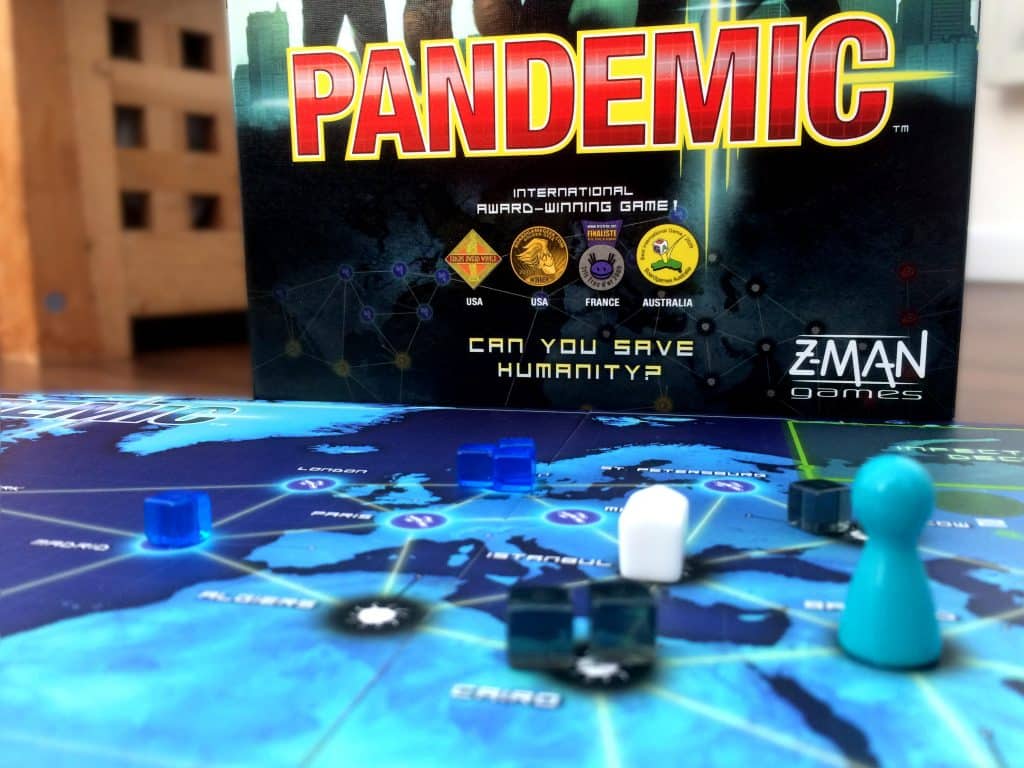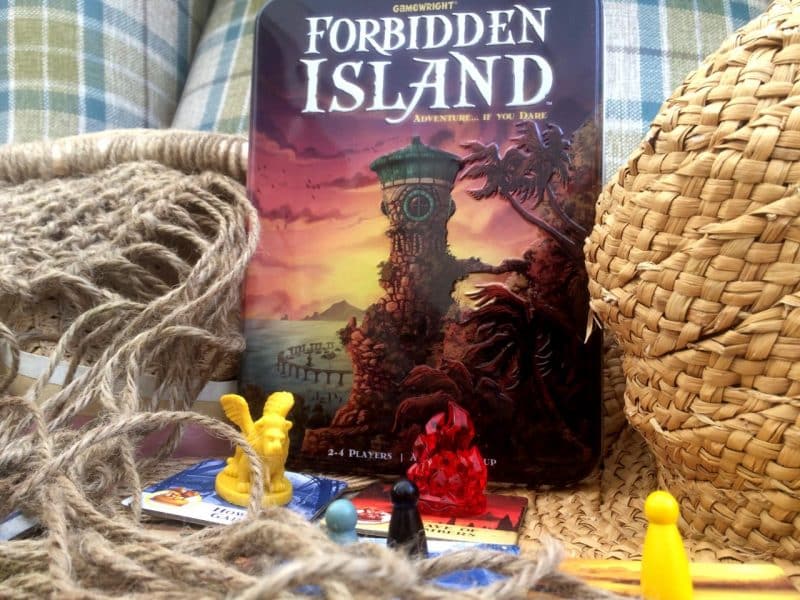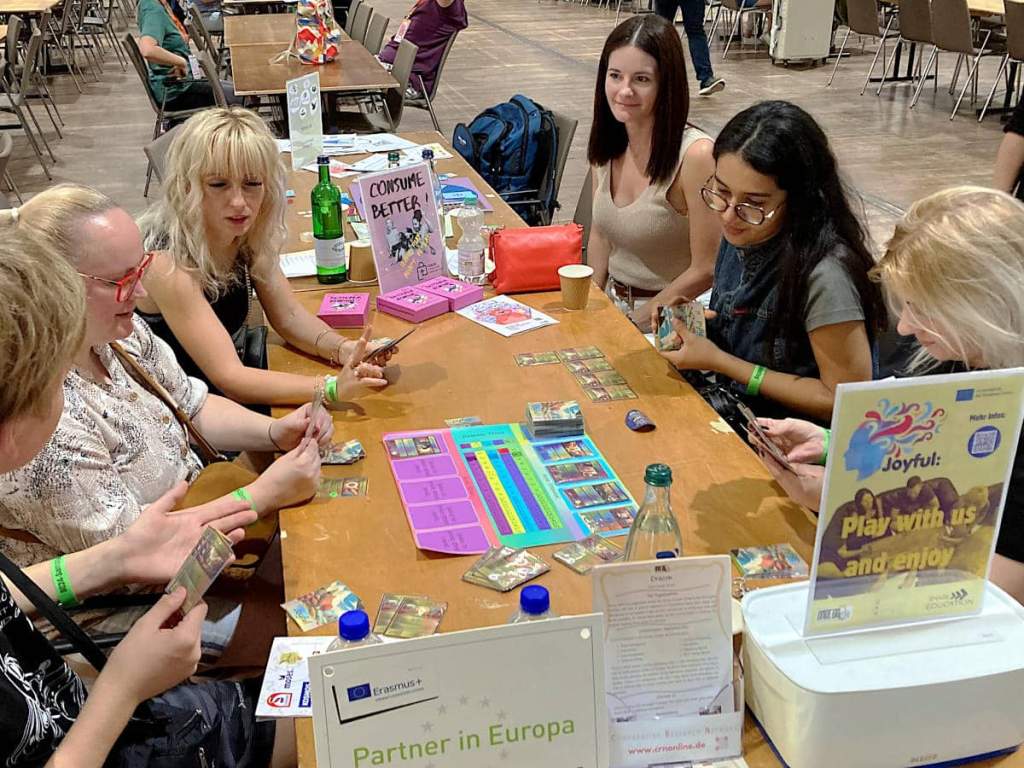This is a guest post by Abdel Mounim Bouazzaoui from The Cardboard Crew.
Most people see board games as entertainment. Roll some dice, move some pieces, maybe argue about house rules. But I’ve noticed something else happening at my weekly game nights over the past few years – we’re all getting better at talking to each other.
Cooperative board games do something competitive games can’t. When you’re planning a heist in Burgle Bros or trying to save the world in Pandemic, you can’t win alone. You need your teammates, which means you need to communicate. And not just talk – actually communicate.
The Difference Between Co-op and Competitive Play
Here’s what makes co-op games special for building communication skills: everyone wants the same outcome. There’s no reason to bluff or hide information. Your success is my success. This changes everything. In Poker, I might lie about my hand. In Monopoly, I’ll definitely try to screw you over on a trade. But in Pandemic? If I don’t tell you exactly what cards I’m holding, we both lose.
The feedback is instant too. Miscommunicate in Hanabi and watch your teammate discard the exact card you needed. Fail to coordinate in Flash Point: Fire Rescue and the building collapses. The game punishes poor communication immediately, which turns out to be a pretty effective teacher.
What You Actually Learn
Listening (Really Listening)
I used to think I was a good listener. Then I played Hanabi.
You can’t see your own cards in Hanabi. Your teammates give you clues, and you have to piece together what you’re holding based on limited information. It’s maddening at first. You realize how much you normally tune out when someone’s talking.
After a few games, something clicks. You start catching subtle implications. When Sarah says “this card is a five,” you remember that Tom said your leftmost card was red three turns ago, and suddenly you know exactly which card to play. That kind of attention to detail carries over to actual conversations.

Getting to the Point
Real-time co-op games will break you of rambling forever.
In Escape: The Curse of the Temple, you have ten minutes – total – to explore a temple and get out before it collapses. There’s no time for “Well, I’m thinking maybe we could potentially consider possibly moving toward…” You learn to say “Move left, grab the gem, I’ll unlock the door.”
My friend Mike used to take five minutes to explain his turn in every game. After a month of playing Escape and Kitchen Rush, he can now explain complex ideas in 30 seconds. His coworkers have definitely noticed.
Building Ideas Together
Gloomhaven taught me something unexpected about brainstorming. In our campaign, we hit a scenario we couldn’t beat. We’d tried everything. Then during our third attempt, Janet suggested something halfway through someone else’s idea. Another player added to that. Within two minutes, we’d created a strategy none of us had thought of individually.
That’s when I realized – co-op games train you to build on what others say instead of waiting for your turn to talk. You stop thinking “here’s MY idea” and start thinking “here’s how we make our idea better.”
Arguing Without Fighting
Last week, we disagreed about which city to save first in Pandemic. I wanted to go to Paris. Tom thought we should handle Tokyo. We both had solid reasoning.

Get yourself a wooden Tabletop Games Blog dice tray.
Each tray is the perfect size to roll your dice, and with the soft mat, it’s really quiet, while the wooden frame makes it wonderfully sturdy.
Here’s what didn’t happen: nobody got defensive. Nobody took it personally. We laid out the facts, evaluated the risks, made a decision, and moved on. When my approach didn’t work out, Tom didn’t say “I told you so.”
Why? Because we’re on the same team. The game creates this space where you can disagree strongly about strategy without anyone feeling attacked. I’ve seen workplace meetings go sideways over much smaller disagreements.

Games Worth Playing
If you want to improve your communication skills, start with these:
The Mind looks ridiculous on paper. Play numbered cards in order without talking. That’s it. But you’ll be shocked at how quickly you develop intuition about when to play cards based on your teammates’ body language and timing. It’s like learning to read a room, compressed into a 15-minute card game.
Forbidden Island works great for families or people new to co-op games. It teaches the basics – sharing information, planning together, making group decisions – without overwhelming anyone. My sister’s kids went from constantly interrupting each other to actually listening after a few sessions.
Spirit Island is where communication gets complex. You’re combining powers, planning multiple turns ahead, and adapting constantly. The game rewards teams that develop shorthand and can quickly pivot when plans fall apart. Our group now has phrases like “island defense” and “escalation turn” that communicate entire strategies in two words.
The Crew restricts when you can talk, which sounds annoying but actually teaches you something valuable: timing matters. Sometimes the best communication is staying quiet and letting others share information first.
This Stuff Actually Works in Real Life
I manage a team at work. About six months after we started doing monthly game nights, I noticed our meetings got more efficient. People started building on each other’s ideas instead of pitching competing solutions. When disagreements came up, the conversations stayed productive.
Was it just the games? Probably not entirely. But I think spending time together in an environment where we had to communicate well created patterns we carried into the office.
Teachers are catching on too. My friend’s daughter has ADHD and struggles with group projects. Her teacher introduced co-op board games during Friday afternoon choice time. The structure helps – the game rules provide a framework for how to contribute. Six months in, she’s way more comfortable speaking up in group work.
For couples, co-op games create a different dynamic than date night movies or restaurants. You’re working together toward something, which means you’re practicing being partners. It’s a small thing, but tackling problems together – even fake monster problems – strengthens how we approach real challenges.

How to Actually Get Better
Don’t just play – be intentional about it.
Switch who explains strategy each game. If you’re naturally quiet, practice speaking up. If you
tend to dominate conversations, practice listening more.
After each game, talk about what happened. Not just “we won” or “we lost,” but how the communication affected the outcome. Where did someone misunderstand? What could’ve been clearer?
Play with different groups. The way I communicate with my hardcore gaming friends differs from how I talk when teaching my parents a new game. That flexibility matters in real life too.
Watch Out for the Know-It-All Problem
One warning: co-op games can enable bad communication if one experienced player dictates everything. That’s not teamwork – that’s one person talking while everyone else sits there.
If you catch yourself quarterbacking, stop. Let other people figure things out. If someone else is doing it, speak up. The whole point is for everyone to communicate, not just listen to the loudest voice.
Final Thoughts
I started playing co-op board games because they’re fun. The communication skills were a bonus I didn’t expect.
But after three years of weekly game nights, I’m convinced these games teach skills most people never deliberately practice. Active listening. Clear communication under pressure. Collaborative problem-solving. Respectful disagreement.
And the best part? You’re learning without realizing it because you’re too busy trying to stop the pandemic or escape the temple or defeat the monsters.
Next time someone asks why you spend Friday nights pushing cardboard around a table, you can tell them you’re practicing essential life skills. You’re also having a great time, but that’s just a bonus.
What games have improved how you communicate? I’d love to hear what’s worked for your group.
This blog is free for everyone, but if you'd like to support it, here are some options.
Useful Links
- The Cardboard Crew: https://thecardboardcrew.
com - Pandemic review: https://tabletopgamesblog.
com/ 2020/ 01/ 18/ pandemic-saturday-review/ - The Mind review: https://tabletopgamesblog.
com/ 2019/ 01/ 05/ the-mind/ - Forbidden Island review: https://tabletopgamesblog.
com/ 2020/ 05/ 02/ forbidden-island-saturday-review/ - The Crew review: https://tabletopgamesblog.
com/ 2020/ 12/ 05/ the-crew-the-quest-for-planet-nine-saturday-review/
Audio Version
Intro Music: Bomber (Sting) by Riot (https://www.
Music: Bensound.com/royalty-free-music
License code: UQ1ZAMBQMFC54UAA
Artist: : Yunior Arronte
Music by: Bensound
License code: 4HTSU7QE9DABIACQ
Artist: : Benjamin Lazzarus





